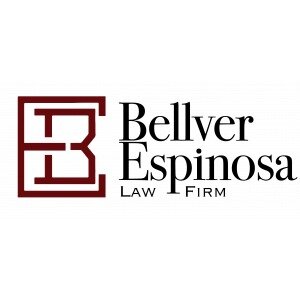Best Hiring & Firing Lawyers in San Juan
Share your needs with us, get contacted by law firms.
Free. Takes 2 min.
List of the best lawyers in San Juan, Puerto Rico
About Hiring & Firing Law in San Juan, Puerto Rico
In San Juan, Puerto Rico, hiring and firing are subject to both local and federal labor laws. The employment laws in Puerto Rico aim to protect the rights and interests of both employers and employees, providing a fair and equitable working environment. Puerto Rico, being a territory of the United States, follows certain federal laws like the Fair Labor Standards Act (FLSA) and the Equal Employment Opportunity laws, but it also has its unique local statutes that address employment matters more specifically. The Puerto Rico Minimum Wage, Vacation and Sick Leave Act, and the Puerto Rico Anti-Discrimination Act are just a few examples of local regulations that play a crucial role in hiring and firing processes.
Why You May Need a Lawyer
There are several common situations where individuals or businesses might require legal assistance regarding hiring and firing practices. These include:
- Handling wrongful termination claims, where an employee believes they were fired without just cause or in violation of a contract.
- Addressing discrimination or harassment complaints from employees during the hiring process or employment period.
- Understanding compliance with wage and hour laws, especially concerning overtime and minimum wage requirements.
- Drafting or reviewing employment contracts to ensure they meet legal standards and protect the interests of all parties involved.
- Advising on the proper procedures for employee terminations, including layoffs and disciplinary actions, to minimize legal repercussions.
Local Laws Overview
Puerto Rico's employment laws are comprehensive and distinct in some areas compared to the mainland U.S. Some key local laws related to hiring and firing in San Juan include:
- Puerto Rico Minimum Wage, Vacation and Sick Leave Act: This law stipulates the minimum wage requirements and mandates paid vacation and sick leave, which may exceed federal requirements.
- Puerto Rico Anti-Discrimination Act: Protects employees from discrimination based on various factors including race, color, gender, age, and sexual orientation.
- Law 80 of 1976 (Unjust Dismissal Act): Governs wrongful termination and requires a justified cause for firing an employee.
- Workmen’s Compensation Act: Provides coverage for workers injured on the job, impacting decisions around hiring and firing post-injury.
Frequently Asked Questions
What is considered wrongful termination in Puerto Rico?
Wrongful termination occurs when an employee is fired without just cause, in violation of an employment contract, or due to discrimination or retaliation.
What protections exist against employment discrimination?
The Puerto Rico Anti-Discrimination Act and federal laws like Title VII protect employees from discrimination based on race, color, religion, sex, national origin, disability, and other factors.
How does Puerto Rico handle employment contracts?
Employment contracts in Puerto Rico must comply with local and federal laws, and it's common practice to have legal review to ensure they meet all legal requirements and protect both parties.
Are there specific requirements for employee terminations in Puerto Rico?
Yes, under Law 80 of 1976, termination must be for a just cause, which includes misconduct or employee performance issues. Otherwise, the employee may be entitled to indemnity pay.
What are the laws regarding overtime pay?
Puerto Rico follows the FLSA for overtime, requiring pay at one and a half times the regular rate for hours worked over 40 in a workweek, with some local variances in calculation.
How much vacation and sick leave are employees entitled to?
The Puerto Rico Minimum Wage, Vacation and Sick Leave Act sets specific entitlement levels based on years of service, often more generous than U.S. federal standards.
What should I do if I face workplace harassment?
Employees experiencing harassment should report it to their HR department or management. They may also file a complaint with the Equal Employment Opportunity Commission or consult a lawyer.
How are layoffs handled in Puerto Rico?
Layoffs must comply with Law 80, requiring the employer to justify the action and potentially provide severance, based on tenure and wage.
Can an employer require a drug test as part of the hiring process?
Yes, employers can require drug tests but must comply with legal standards ensuring the process is non-discriminatory and results are kept confidential.
How does the Workmen’s Compensation Act affect hiring and firing?
It provides protections and coverage for work-related injuries, influencing decisions regarding termination post-injury and encouraging compliance with safety norms.
Additional Resources
For more information or assistance, consider reaching out to the following entities:
- Puerto Rico Department of Labor and Human Resources
- Equal Employment Opportunity Commission (EEOC)
- Puerto Rico Bar Association
- Local legal aid societies and pro bono legal services
Next Steps
If you find yourself in need of legal assistance in hiring or firing matters in San Juan, Puerto Rico, follow these steps:
- Consult with a specialized employment lawyer familiar with both local and federal laws to get tailored legal advice.
- Document all relevant communications and actions taken regarding your situation, as this can be crucial for legal consultations.
- Consider reaching out to one of the recommended resources or organizations for additional support and guidance.
Being informed about your rights and the processes involved can make navigating employment-related issues more straightforward and help ensure fair treatment for all parties involved.
Lawzana helps you find the best lawyers and law firms in San Juan through a curated and pre-screened list of qualified legal professionals. Our platform offers rankings and detailed profiles of attorneys and law firms, allowing you to compare based on practice areas, including Hiring & Firing, experience, and client feedback.
Each profile includes a description of the firm's areas of practice, client reviews, team members and partners, year of establishment, spoken languages, office locations, contact information, social media presence, and any published articles or resources. Most firms on our platform speak English and are experienced in both local and international legal matters.
Get a quote from top-rated law firms in San Juan, Puerto Rico — quickly, securely, and without unnecessary hassle.
Disclaimer:
The information provided on this page is for general informational purposes only and does not constitute legal advice. While we strive to ensure the accuracy and relevance of the content, legal information may change over time, and interpretations of the law can vary. You should always consult with a qualified legal professional for advice specific to your situation.
We disclaim all liability for actions taken or not taken based on the content of this page. If you believe any information is incorrect or outdated, please contact us, and we will review and update it where appropriate.









